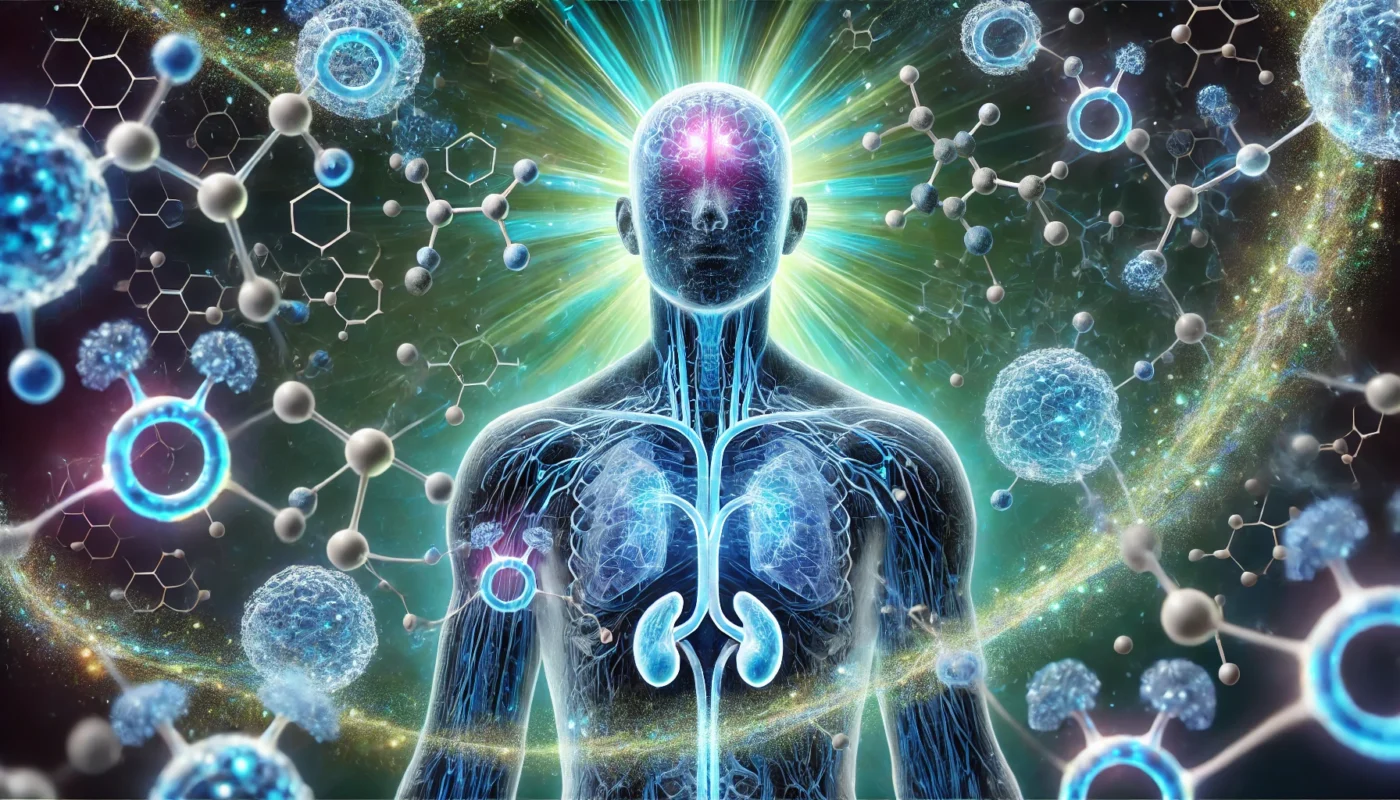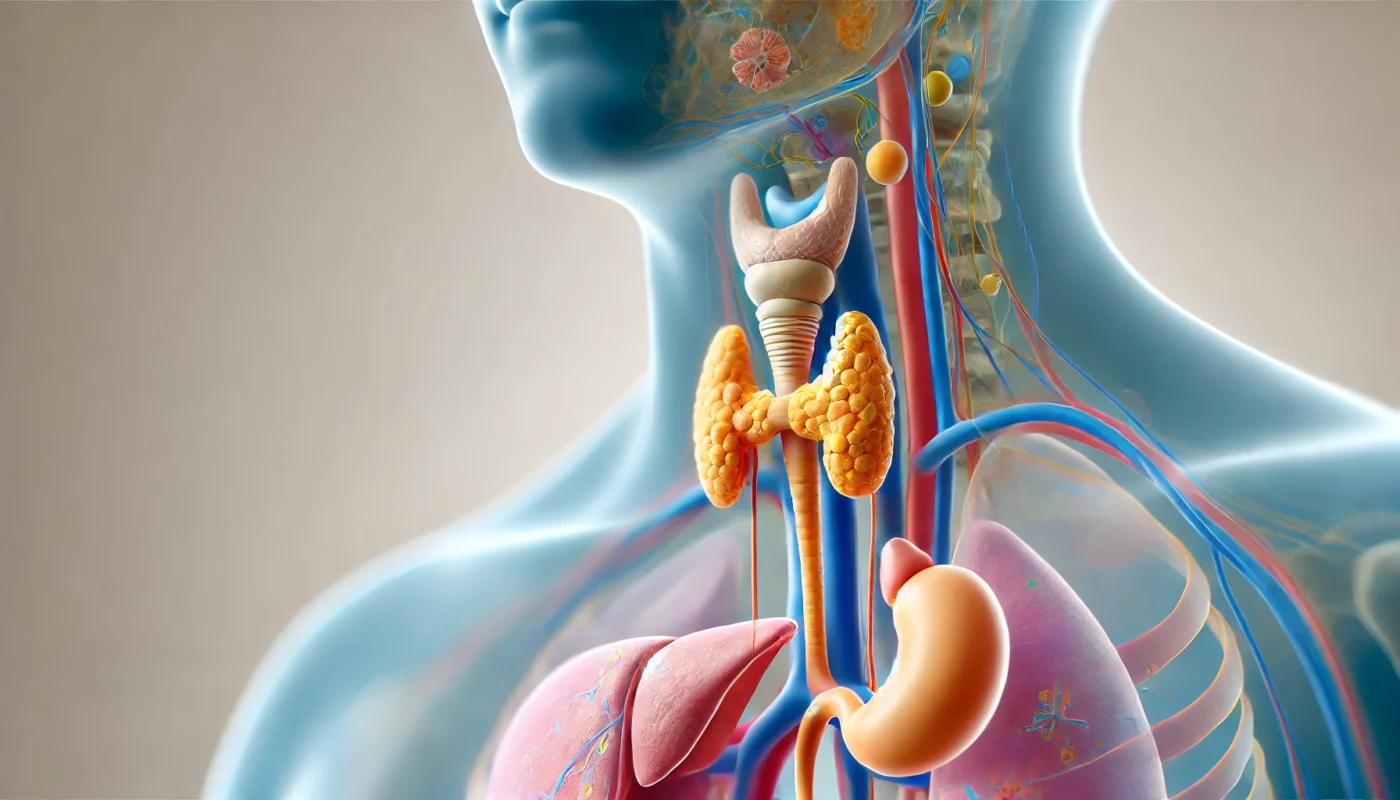The endocrine system is a collection of glands that secrete hormones directly into the bloodstream. These hormones regulate various bodily functions, from growth and metabolism to mood and reproductive processes. Key glands include the pituitary, thyroid, adrenal glands, and the pancreas. Each of these has a specific function, and together they maintain the body’s homeostasis.
You may also like: Best Veggies for Women’s Hormonal Health
Key Glands and Their Functions
The pituitary gland, often termed the “master gland,” regulates other endocrine glands and controls growth, metabolism, and reproduction. The thyroid gland influences metabolism, energy levels, and body temperature, while the adrenal glands produce hormones that help in stress response and metabolism regulation. The pancreas, crucial for blood sugar regulation, secretes insulin and glucagon to maintain blood glucose levels. Understanding each gland’s role is vital for appreciating the intricate balance required for optimal health.
Hormonal Interactions and Balance
Hormones act as messengers between different parts of the body, influencing various physiological activities. The interaction between hormones is complex; for example, cortisol from the adrenal glands affects insulin levels, which in turn influences energy metabolism. This interplay requires precise regulation to maintain homeostasis. Disruptions can lead to conditions like diabetes or thyroid disorders, underscoring the importance of hormonal balance in health.
Understanding Hormonal Regulation
Hormones are chemical messengers that transmit signals from one part of the body to another. They are involved in almost every function within the body, such as energy levels, immune function, and reproductive health. Hormones like insulin, cortisol, and thyroid hormones are well-known for their roles in metabolism, stress response, and growth regulation, respectively.

Impact of Estrogen-Like Chemicals in Food
In recent years, there has been growing concern about estrogen-like chemicals found in foods, often referred to as xenoestrogens. These compounds can mimic the action of estrogen in the body and potentially disrupt normal hormone functions.
Sources of Xenoestrogens
Xenoestrogens are found in various foods and products. They are prevalent in processed foods, pesticides, and certain plastics. For instance, bisphenol A (BPA), commonly found in plastic containers and the lining of canned goods, is a known xenoestrogen. Additionally, some plant-based foods, such as soy, contain phytoestrogens, which can also affect hormonal balance.
Environmental and Dietary Exposure
Everyday exposure to xenoestrogens can occur through contaminated water, non-organic produce, and meats from animals treated with growth hormones. These chemicals accumulate in the body over time, posing a risk to endocrine health. Awareness and careful selection of products can help minimize exposure and reduce the risk of hormonal disruption.
Health Implications
The impact of xenoestrogens on health can be profound, leading to conditions such as hormonal imbalances, reproductive issues, and even certain cancers. It is essential to be mindful of these compounds and strive to minimize exposure through informed dietary choices and lifestyle changes.
Strategies for Reducing Exposure
To protect against xenoestrogens, one can adopt a diet rich in organic foods, avoid microwaving plastics, and choose glass or stainless steel containers for food storage. These small yet significant changes can reduce the body’s xenoestrogen burden, supporting a healthier endocrine function.

Achieving Natural Hormone Balance
Maintaining a natural hormone balance is achievable through a combination of dietary adjustments, lifestyle changes, and holistic practices.
Dietary Strategies
- Incorporate Whole Foods: Focus on consuming whole, unprocessed foods. Fruits, vegetables, lean proteins, and whole grains provide essential nutrients that support endocrine health. Whole foods are rich in fiber, vitamins, and minerals that aid in detoxification processes and support hormone production.
- Limit Exposure to Xenoestrogens: Opt for organic produce to reduce pesticide intake, and avoid plastic containers for food storage. Choose glass or stainless steel instead. Eating organic reduces ingestion of harmful chemicals, promoting a cleaner internal environment conducive to hormonal balance.
- Include Healthy Fats: Healthy fats, such as those found in avocados, nuts, and olive oil, are vital for hormone production and balance. These fats are essential for building cell membranes and producing steroid hormones like estrogen and testosterone.
- Balanced Macronutrients: Ensuring a balanced intake of carbohydrates, proteins, and fats stabilizes blood sugar levels, which is crucial for maintaining hormonal equilibrium. Complex carbohydrates and lean proteins can prevent insulin spikes, supporting metabolic health.
- Hydration and Detoxification: Adequate water intake helps in detoxifying the body by flushing out toxins that could disrupt hormone functions. Herbal teas and detoxifying foods like cruciferous vegetables can also support liver function, a key player in hormone regulation.
Lifestyle Modifications
- Regular Exercise: Physical activity helps regulate hormones by reducing stress and promoting healthy insulin levels. Aim for a balance of cardiovascular, strength, and flexibility exercises. Exercise enhances mood through endorphin release and improves metabolic rate, aiding in weight management.
- Manage Stress: Chronic stress can disrupt hormone balance. Practices such as yoga, meditation, and deep-breathing exercises are effective for stress management. These activities lower cortisol levels, helping to maintain a stable hormonal environment.
- Adequate Sleep: Quality sleep is crucial for hormone regulation. Ensure you get 7-9 hours of uninterrupted sleep each night. Sleep deprivation can lead to imbalances in hormones like leptin and ghrelin, affecting hunger and satiety.
- Mindful Breathing and Relaxation Techniques: Incorporating deep breathing exercises and progressive muscle relaxation can significantly lower stress hormones, promoting a calm and balanced hormonal state.
- Social Connections and Emotional Well-being: Maintaining strong social ties and engaging in activities that bring joy and satisfaction can improve overall well-being and support hormonal health.
Holistic Approaches
- Herbal Supplements: Some herbs, like ashwagandha and rhodiola, are known for their adaptogenic properties and can aid in stress management and hormonal balance. These herbs help the body adapt to stress and reduce cortisol levels, promoting equilibrium.
- Acupuncture: This ancient practice can help regulate hormones and alleviate symptoms of hormonal imbalance. By stimulating specific points on the body, acupuncture can enhance energy flow and improve organ function.
- Mindfulness and Meditation: Incorporating mindfulness practices can significantly reduce stress, leading to improved hormonal health. Mindfulness techniques enhance awareness and promote emotional balance, reducing the impact of stress on hormone levels.
- Aromatherapy and Essential Oils: Using essential oils like lavender and chamomile can promote relaxation and hormonal balance. Aromatherapy can be a soothing addition to a holistic health routine, supporting mood regulation.
- Nutritional Therapy and Customized Plans: Consulting with a nutritionist to create personalized dietary plans can address specific hormonal needs, optimizing nutrient intake for better endocrine function.

Conclusion
Understanding the natural endocrine functions and achieving hormone balance is essential for overall well-being. By making informed choices about diet, lifestyle, and holistic practices, you can support your body’s endocrine system and promote optimal health. Whether you are a fitness enthusiast, health enthusiast, or managing a medical condition, these strategies provide a pathway toward a balanced and healthier life.
Remember, while these strategies are beneficial, it’s always best to consult with a healthcare provider before making significant changes to your health regimen, especially if you have preexisting health conditions or are on medication. Seeking professional guidance ensures that your approach to hormone balance is safe and tailored to your individual needs.
natural endocrine, hormone balance, endocrine system, hormonal health, gland function, pituitary gland, thyroid health, adrenal glands, pancreas function, hormone regulation, metabolism support, stress and hormones, insulin balance, cortisol levels, endocrine disruptors, xenoestrogens, estrogen-like chemicals, hormonal imbalance, natural hormone balance, holistic health, organic diet, detoxification, stress management, sleep and hormones, healthy lifestyle, herbal supplements, ashwagandha benefits, rhodiola benefits, acupuncture for hormones, mindfulness and hormones, aromatherapy benefits, endocrine-friendly diet
Further Reading:
Nature-Throid 325 Mg Tablet – Uses, Side Effects, and More
Hypothyroidism patients cite effectiveness in choosing alternative to standard therapy
Important Note: The information contained in this article is for general informational purposes only, and should not be construed as health or medical advice, nor is it intended to diagnose, prevent, treat, or cure any disease or health condition. Before embarking on any diet, fitness regimen, or program of nutritional supplementation, it is advisable to consult your healthcare professional in order to determine its safety and probable efficacy in terms of your individual state of health.
Regarding Nutritional Supplements Or Other Non-Prescription Health Products: If any nutritional supplements or other non-prescription health products are mentioned in the foregoing article, any claims or statements made about them have not been evaluated by the U.S. Food and Drug Administration, and such nutritional supplements or other health products are not intended to diagnose, treat, cure, or prevent any disease.

